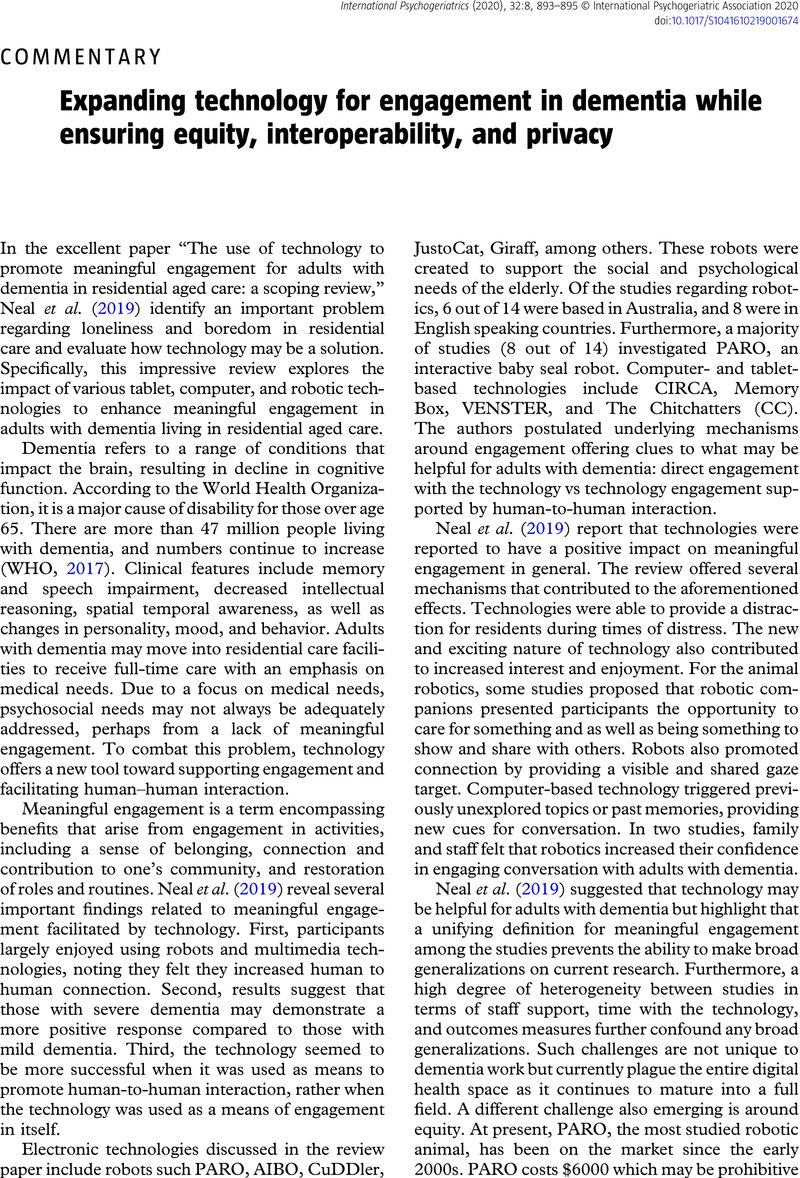Crossref Citations
This article has been cited by the following publications. This list is generated based on data provided by Crossref.
Lee, Ellen E.
Torous, John
De Choudhury, Munmun
Depp, Colin A.
Graham, Sarah A.
Kim, Ho-Cheol
Paulus, Martin P.
Krystal, John H.
and
Jeste, Dilip V.
2021.
Artificial Intelligence for Mental Health Care: Clinical Applications, Barriers, Facilitators, and Artificial Wisdom.
Biological Psychiatry: Cognitive Neuroscience and Neuroimaging,
Vol. 6,
Issue. 9,
p.
856.
Verma, Rohit Kumar
Pandey, Manisha
Chawla, Pooja
Choudhury, Hira
Mayuren, Jayashree
Bhattamisra, Subrat Kumar
Gorain, Bapi
Raja, Maria Abdul Ghafoor
Amjad, Muhammad Wahab
and
Obaidur Rahman, Syed
2022.
An Insight into the Role of Artificial Intelligence in the Early Diagnosis of Alzheimer’s Disease.
CNS & Neurological Disorders - Drug Targets,
Vol. 21,
Issue. 10,
p.
901.
Hung, Lillian
Wong, Karen Lok Yi
Mann, Jim
Berndt, Annette
Wong, Lily
Wang, Carly
Liao, Deborah
Pan, Diane
and
Ren, Haopu
2024.
The Perspective of Nurses and Healthcare Providers on the use of Television Videos with People with Moderate to Severe Dementia.
Canadian Journal of Nursing Research,
Vol. 56,
Issue. 1,
p.
49.



